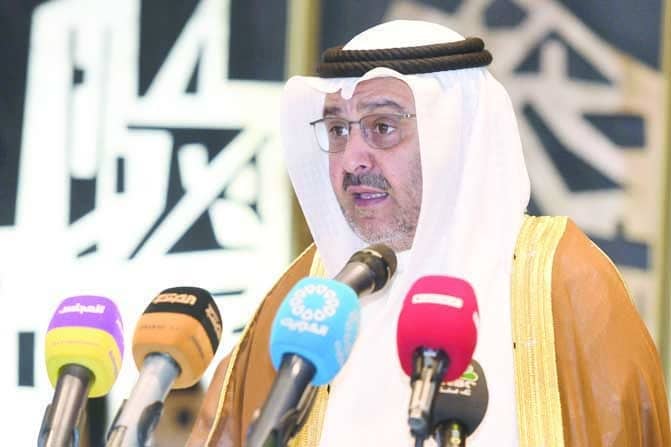KUWAIT: Minster of Commerce and Industry Fahad Al-Shuraian said on Wednesday that the political and economic changes that the world was going through amidst the sharp fluctuating oil prices required some serious measures to enhance the economy through economic restoration programs and initiatives to privatize a number of public sector institutions. This came in an economic forum organized by the Arab Planning Institute entitled 'towards more privatization in the GCC' with the participation of several economic experts and officials.
Shuraian added that economic restoration programs aim to improve the level of competition, which reflects positively on the country and lifts the load on the government, and creates new job opportunities. "It requires new measures in order to achieve Kuwait's vision, measures that correspond to the international requirements, the application of transparency and equality standards, these are the main characteristics for the transformation into a financial center," he pointed out.
 Former commerce minister Amani Bouresly addresses the forum.
Former commerce minister Amani Bouresly addresses the forum.Amani Bouresly, former Minster of Commerce and Industry, and head of the organizing committee of the forum, said meanwhile that privatization is one of the solutions to reduce the continuous inflation in the public sector's institutions and the rise costs and expenses. "Privatization has great benefits on the economic level, the most important of which is raising productivity and improving the level and efficiency of public services, but this file is still facing many organizational, legislative and social obstacles," she added. She pointed out that the process of reconstructing the economy and downsizing the public sector that has more than 400,000 employees is considered one of the main pillars of Kuwait vision 2035, as for the private sector can create more job opportunities for upcoming workers to the market.
Meanwhile, Arab Planning Institute consultant Dr Fahad Al-Fadhala said that the forum's main goal is to shed the light on the efforts of the privatization programs in the GCC and its role in repairing the economy. Furthermore, Head of the Kuwait technical agency for privatization program Sheikh Fahad Salim Al-Sabah said that the biggest challenge that faces privatization in Kuwait is the large increase of national labors in the governmental sectors, which leads to a larger cost on the country. The legislators offer employees the chance to choose between staying in the institute to be privatized, to move to another governmental job or retirement.
"The number of Kuwaiti employees in the telecommunications sector before privatization did not exceed 500 employees and there was only one company, while privatization allowed competition in the market, bringing the number of companies to three, creating more than 2,500 job opportunities for Kuwaitis, and this is evidence that proper privatization brings positive results on the Kuwaiti economy," he added. This second economic forum, organized by the Arab Planning Institute, which is held over two days, represents an opportunity to gather all the concerned parties related to the privatization program, to display the different viewpoints and successful regional and international experiences and the possibility of benefiting from them at the Gulf level. - KUNA











